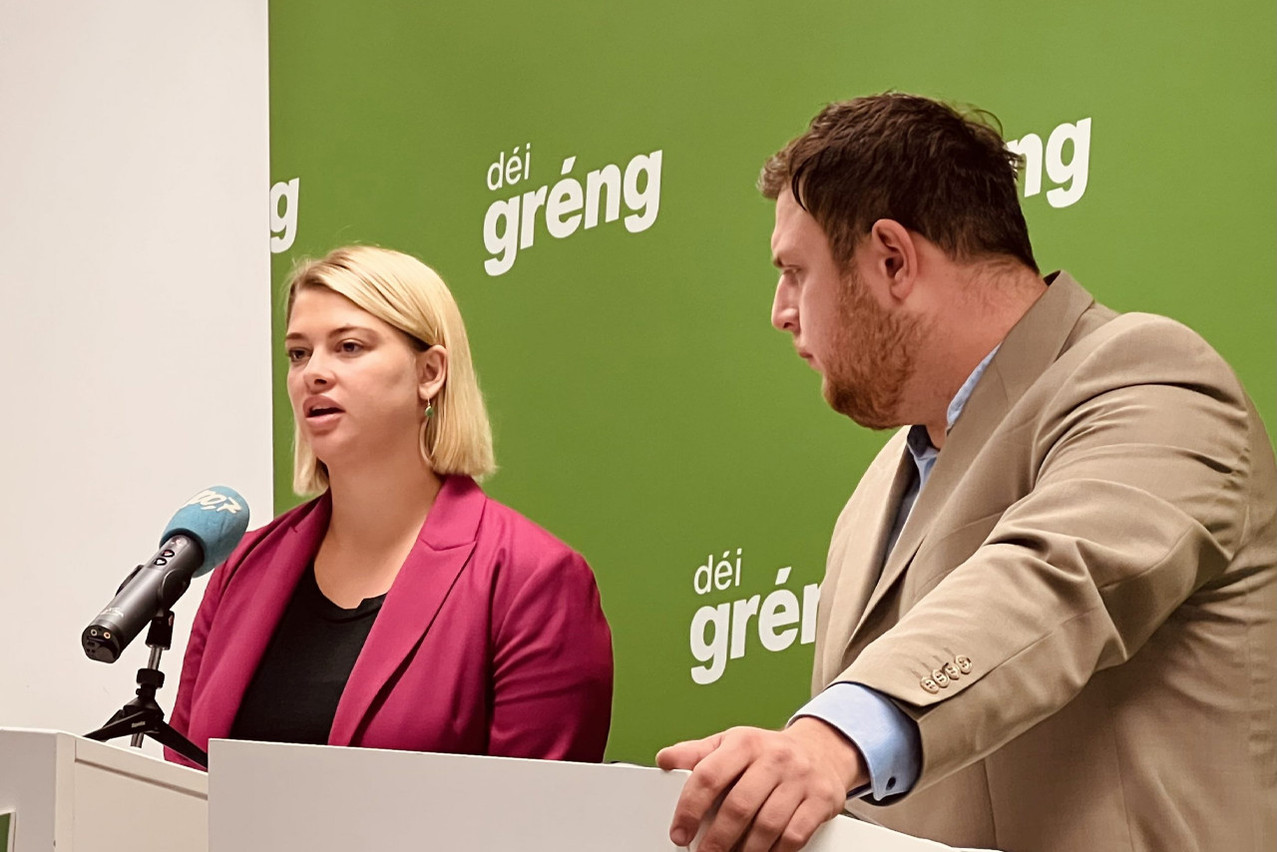"We have to help people as soon as possible, without waiting for the tripartite,” the co-president of Déi Gréng, , said on Wednesday morning. Accompanied by the party’s other co-president, , Bernard was speaking at a press conference called following the announcement of a on Tuesday.
On the agenda was a proposal for one-off financial aid, targeted at households in need and small businesses, as soon as possible. "Normally, we always hold a press conference a little later, but we were disturbed by the gas price announcements,” Bernard explained. "We have to help people now with very concrete financial support."
The reasoning is simple: the sharp rise in gas prices is expected on 1 October. By then, the "tankrabatt”--a subsidy of 7.5 cents per litre of petrol--will no longer be paid out it ends on 31 August) and the tripartite negotiations for further aid will not be completed. It is therefore a question of offering financial support to residents who need it, pending a possible tripartite agreement.
In fact estimates suggest that the increase in natural gas prices will result in an average additional cost of €2,400 per year per household. "This is still a substantial amount, and people need to be relieved," says Bernard.
€1,000 in one go
This financial aid, amounting to "more or less" €1,000, would therefore be paid in one go, for households ranging from the most vulnerable to the middle classes--roughly speaking, incomes of up to €80,000 per year, on the model of the energy tax credit (CIE), with the possibility of a sliding scale of charges above a certain amount.
Small businesses should also be able to benefit from one-off assistance, according to Déi Gréng. But for these, the framework remains unclear: the amount allocated or the criteria for beneficiaries have not been defined.
In any case, déi Gréng will have to convince its coalition partners, DP and LSAP. The latter, questioned by Delano's sister publication Paperjam the day before on the issue of gas prices, seemed to be relying on the solutions that the tripartite could provide.
The subject will be on the agenda of the first cabinet meeting following the summer recess, which will take place on Friday 2 September. If the proposal passes this stage, the framework of each aid will then have to be negotiated with the ministries concerned.
This article was originally and has been translated by Delano.
